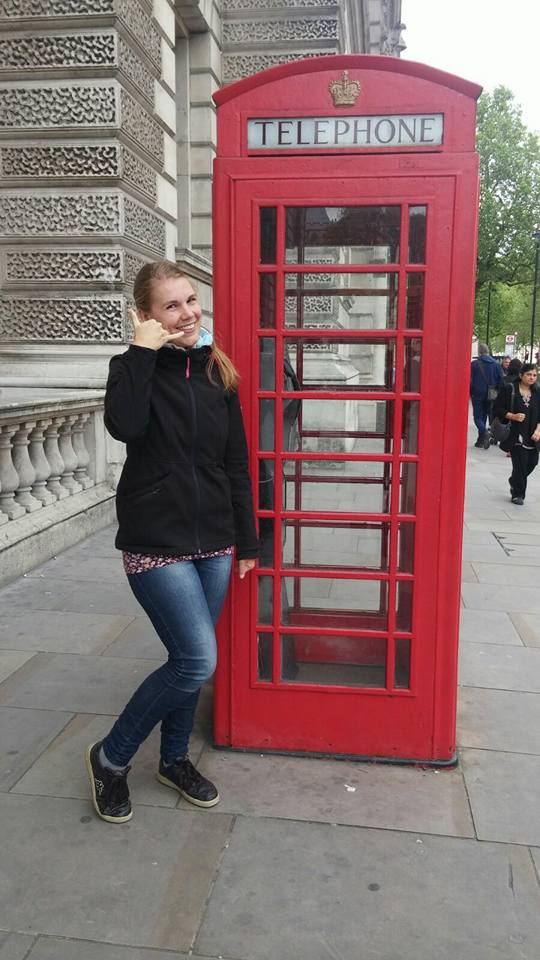 Lately, I have been occupied with the concept of boundary crossing. The first (and not the least) reason is, that within my own PhD, boundary crossing could provide me with a useful concept to look at the linkage between research and design activities in an educational context. The other, main reason is that my partner and I are literally boundary crossing (or actually, border crossing) at the moment, and the reason is: research. To be more specific, we are now crossing a physical boundary (called North Sea) as well as a symbolic boundary (Brexit), separating The Netherlands from the UK, since my partner moved to London for his first post-PhD postdoc job.
Lately, I have been occupied with the concept of boundary crossing. The first (and not the least) reason is, that within my own PhD, boundary crossing could provide me with a useful concept to look at the linkage between research and design activities in an educational context. The other, main reason is that my partner and I are literally boundary crossing (or actually, border crossing) at the moment, and the reason is: research. To be more specific, we are now crossing a physical boundary (called North Sea) as well as a symbolic boundary (Brexit), separating The Netherlands from the UK, since my partner moved to London for his first post-PhD postdoc job.
Boundary crossing is defined as “negotiating and combining ingredients from different contexts to achieve hybrid situations’’ (Engeström et al., 1995, p. 319). These boundaries can be crossed by people (called “brokers”), but also by objects (Akkerman & Bakker, 2011a). I think this theory might not only prove to be of use for my research, but also perfectly sums up my personal situation right now. We are combining ingredients from different situations (eg. living in The Netherlands and living in the UK) to achieve a hybrid situation in which my partner and I can still see each other and live with each other regularly, smoothly moving between these two countries.
However, we are still learning to be brokers, still learning how to optimally cross that boundary and facing difficulties while doing so. I think many researchers can identify with the challenges one faces while working and living abroad. It is very common to gain some research experience abroad while doing your PhD, this is also an activity very much encouraged here at ICLON.
If you have worked or lived abroad, what were your experiences? What things did you find helpful (or not)?
Below are some of my experiences:
- Be prepared for the idea. When you’re in research, especially certain fields of scientific research, research jobs are not so easy to get within a small country like The Netherlands. There might be far more opportunities in other countries. No one tells you this when you start an academic study, but I wish I had known when I was still studying Biology. It really was a surprise to me that staying in The Netherlands is not self-evident when choosing for certain research professions.
- Make good agreements with your partner/family. It is much easier to go overseas if you can see eye to eye with your loved ones, and not dragging along a reluctant partner. For example, we agreed to Skype every day (be sure to buy enough internet data for Skype! We made that mistake) and see each other every two weeks, while taking turns in flying to The Netherlands or the UK.
- Money issues. Be sure you have an adequate amount of saving money before moving to another country. This whole operation can be quite costly, if the company or university you are working for does not reimburse your flight or moving costs. We also had to spend some money on furniture in our London apartment, since we could not move whole closets to England by car (and Ikea in England is much more expensive!).
- Socializing. If you’re moving to work abroad, it is very important to get to know some people to build a social network while you’re there. This will make your stay much easier and much more pleasant. Get to know your colleagues, go to borrels, maybe join a club or sportsteam. This is of course also very important for the partner staying home 🙂
- Sightseeing. While you’re in another country, why not play the tourist for a few times and plan trips to go sightseeing. I have seen sides of London that I otherwise would never have seen, because of this move. And we are planning to see a lot more.
I hope, as I progress in the boundary crossing literature for my research, I will also become a more experienced broker myself in real life. And who knows, maybe in a few years it will be me crossing a boundary for research…?


Airplane & telephone: boundary objects…?
Akkerman, S. F., & Bakker, A. (2011). Learning at the boundary: An introduction. International Journal of Educational Research, 50(1), 1-5.
Engeström, Y., Engeström, R., & Kärkkäinen, M. (1995). Polycontextuality and boundary crossing in expert cognition: Learning and problem solving in complex work activities. Learning and Instruction, 5, 319–336.


Recent Comments